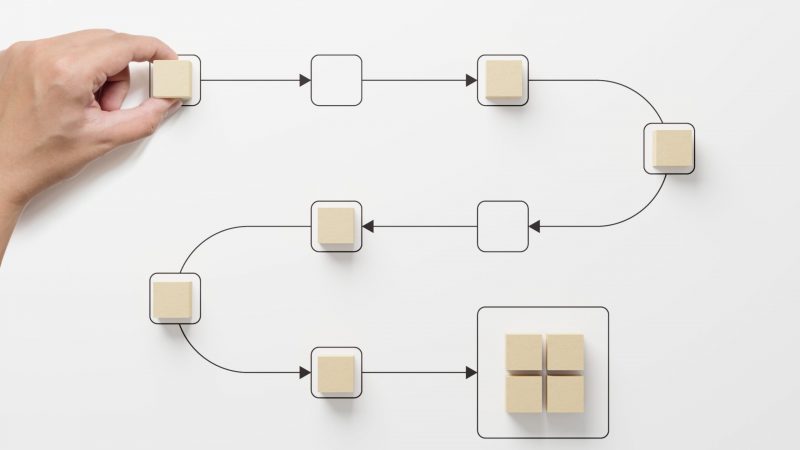
Data is one of the biggest tools that a company has. It tells the story of how the business is doing and everything involved in the complicated process. But at the same time it’s a huge challenge. The amount of data can be overwhelming and time consuming, and if too much time is spent organizing and understanding it, then the process can become costly and time consuming with minimal results.
Centralized data solves these problems and allows teams to get more out of the data in a safer, deeper, and more efficient way. While this is true of any company team, it is especially true of finance teams who will gain a broader and clearer picture of where the company stands and how to drive company growth. Five of the most important benefits of centralized data are:
1) Consistency
With centralized data, teams can avoid the multitude of misunderstandings and inconsistencies that used to take up a lot of hours. A consistent management and data distribution process through its internal systems can be achieved when data feeds are managed in a central repository. A centralized data system reduces the need for manual sorting, validating, and preparing of the data.
But consistent data does more than save time. It allows teams to be on the same page, which creates both better customer experience and positive business outcomes. In addition it creates an environment of transparency across the entire organization which makes reporting and analytics more consistent and easier to understand.
Lastly, creating consistency is one of the rare occurrences where it benefits both internal and external users, as the organization is able to present the product without inconsistencies.
2) Data Security
Perhaps the biggest reason to switch to centralized data management is due to security reasons. The amount of damage that can be caused from data breaches and unsecure data management is enormous, and the frequency of these occurrences is rising.
In fact data security is not only relevant to those intent on harming the data, and it can also happen by mistake from those inside the organization. For finance teams without a centralized system, multiple employees tend to work on the same spreadsheets and can change the data without anyone having full control over who can do what.
With centralized data, organizations can easily monitor and control data access, greatly reducing data security concerns that occur either on purpose or by accident. With centralized data, it is secured with documentation and people won’t be able to access the data unless they’re given permission through a controlled and consistent process.
3) Saving Time and Money
“Time is money” in business and in this case it affects both. Centralized data is more efficient and cost effective for a number of reasons:
- As mentioned above, data security prevents potentially costly mistakes
- Data reporting and manipulation are far faster, creating more time for analysis
- Centralized data saves costs on data administration functions and license fees for multiple software packages
- Teams reach conclusions much faster and with more confidence, giving them more time to move forward with strategic initiatives
- Centralized data softwares often come with automated functions, greatly reducing time spent on manual processes even more
Centralized data creates a more efficient process that reduces headaches and time consuming tasks involving data sources. One of the most important benefits is freeing the team up from these manual processes, as they not only take a lot of time and are inefficient but also reduce employees’ motivation in the midst of a skills shortage.
4) Focus and Collaboration
While centralized data reduces the need for collaboration among inefficient processes such as data integrity and who is responsible for manually standardizing the data, it increases collaboration and focuses on other important aspects.
To begin with, all the employees learn one enterprise data model which means clearer communication and “speaking the same language”. In addition, it helps employees understand roles and responsibilities across the entire organization which increases efficiency as well.
All in all, the mindset created by having centralized data creates a collaborative environment for the company which supports team building and growth. It allows teams (and finance teams in particular) to understand the responsibilities of each company department while creating a clearer path to their goals.
5) Valuable Insights
By bringing all the data together, finance teams can start seeing business intelligence capabilities improve very quickly. It vastly expands the understanding of progress towards KPIs and other company goals.
Whereas before centralized data was common, tracking and reporting were a separate entity and oftentimes disconnected, with centralized data, tracking things such as revenue, profit, and inventory are more accurate and updated in real time. Instead of logging into multiple systems and trying to put all of the information together, a centralized system combines all of the data together into a single, user-friendly report.
Data in different currencies or metrics will be organized into one unit, and not having to manually consolidate or worry about trivial things like this allows teams to drill down into more valuable insights. Overall, centralized data is the one true source of data that companies can go to for reliable and in depth analysis.
Conclusion
Centralized data is the first step in taking full advantage of all of the data available to a company. Whether it be a central marketing database such as Salesforce or an FP&A solution that centralizes data such as Datarails, having clean and organized data in one place will increase company insights and drive growth.


